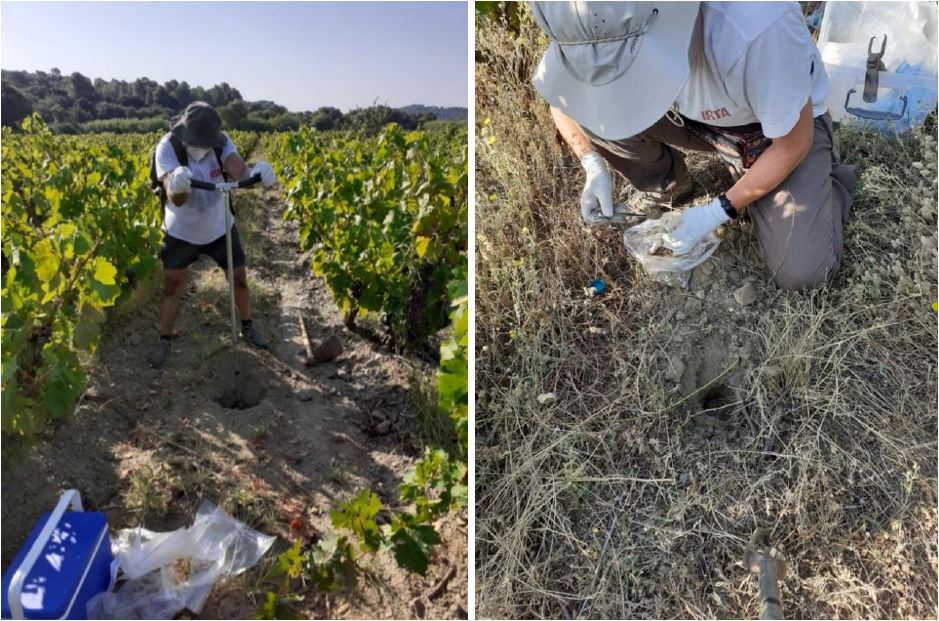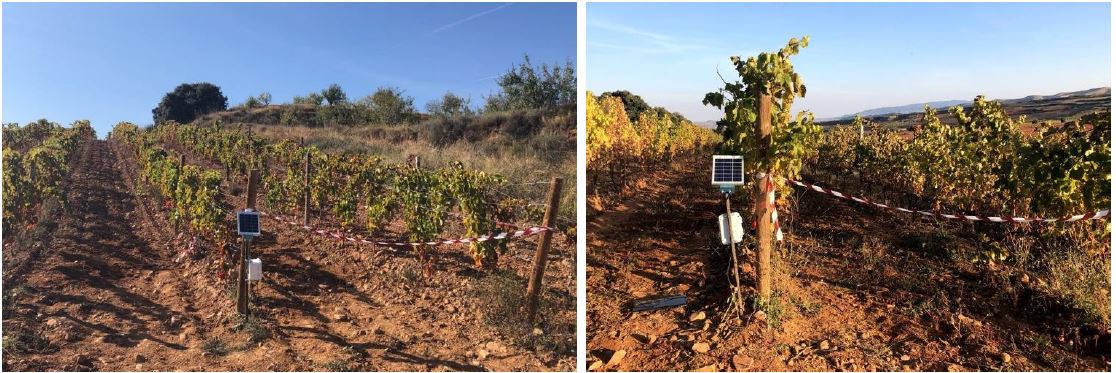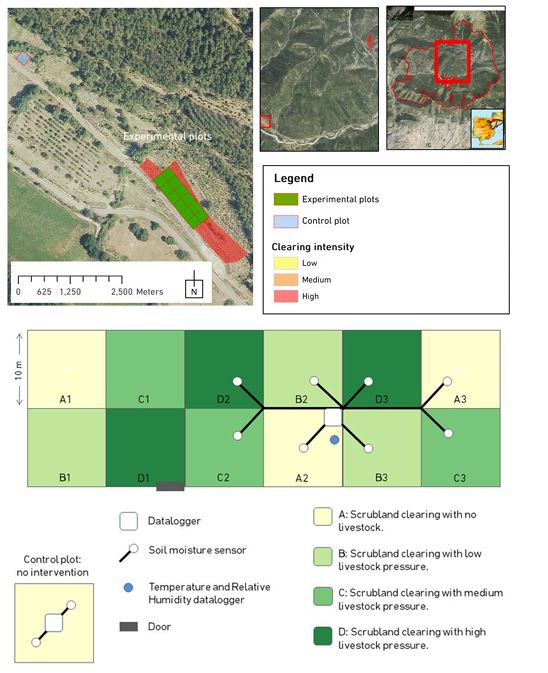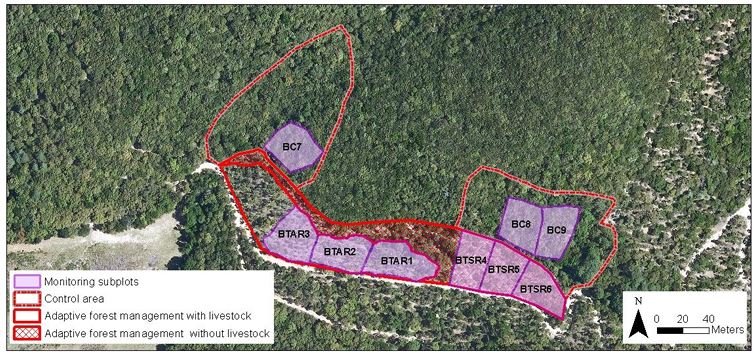LIFE MIDMACC is a project whose main objective is to promote adaptation to climate change through the implementation and testing of different landscape management alternatives in rural mid-mountain areas, while promoting sustainable socio-economic development.
The project has a trans-regional character as it will be developed in three regions of Spain: La Rioja, Aragon and Catalonia, in mid-mountain areas with very different climatic and environmental characteristics.
In addition to the OPCC-CTP, the project partnership is composed of: the Centre de Recerca Ecològica i Aplicacions Forestals (CREAF, lead partner), the Instituto Pirenaico de Ecología (IPE-CSIC), the Institute of Agrifood Research and Technology (IRTA), the Oficina Catalana del Canvi Climàtic (OCCC), the Universidad de Zaragoza (Unizar), the Universidad de La Rioja, and the Universidad Autónoma de Barcelona.
Learn more about the MIDMACC pilot cases here:
![]() The pilot cases in the vineyards of Catalonia have been established in three different sites in two different mountain regions: two sites in the DO Empordà (Roses and Espolla), in the Coastal Pyrenees, and one site in Llívia, Cerdanya, in the Central Pyrenees. In total, the experience has been carried out on 9 plots covering a total area of 7.5ha. The pilot vineyard experiences cover a range of agricultural conditions and practices that have been compared between different plots and sites and with other commercial mid-mountain vineyards not participating in the project, in order to select the best practices for mountain vineyards to better adapt to climate change.
The pilot cases in the vineyards of Catalonia have been established in three different sites in two different mountain regions: two sites in the DO Empordà (Roses and Espolla), in the Coastal Pyrenees, and one site in Llívia, Cerdanya, in the Central Pyrenees. In total, the experience has been carried out on 9 plots covering a total area of 7.5ha. The pilot vineyard experiences cover a range of agricultural conditions and practices that have been compared between different plots and sites and with other commercial mid-mountain vineyards not participating in the project, in order to select the best practices for mountain vineyards to better adapt to climate change.

In La Rioja, the pilot experience has been carried out in the Vivanco (Tudelilla) and San Prudencio (Clavijo) wineries, both located in La Rioja. The pilot experiences in vineyards cover a series of agricultural conditions and practices that will be compared between different plots, such as terraces vs. slopes, and both sites (Clavijo and Tudelilla). In total the experience has been implemented in 8 plots covering a total area of 13.24 ha.


 The pilot experience on forest management has been carried out at the Experimental Station of La Garcipollera (Central Pyrenees, Huesca, Spain). The pilot experience consisted of the application of adaptive forest management in two plots: one plot of 0.58 ha in a reforestation forest of Pinus nigra and 1.3 ha in a forest of Fraxinus, consisting of high intensity selective thinning of scrub and thinning of scrub. On the other hand, an area of 0.55 ha has been left without action. This control area is close to the managed area and has similar conditions in terms of location, altitude and orientation. The conteol area has not been managed or grazed, in order to monitor the evolution of the no-action site.
The pilot experience on forest management has been carried out at the Experimental Station of La Garcipollera (Central Pyrenees, Huesca, Spain). The pilot experience consisted of the application of adaptive forest management in two plots: one plot of 0.58 ha in a reforestation forest of Pinus nigra and 1.3 ha in a forest of Fraxinus, consisting of high intensity selective thinning of scrub and thinning of scrub. On the other hand, an area of 0.55 ha has been left without action. This control area is close to the managed area and has similar conditions in terms of location, altitude and orientation. The conteol area has not been managed or grazed, in order to monitor the evolution of the no-action site.

PYRENEAN CLIMATE CHANGE OBSERVATORY
Avenida Nuestra Señora de la Victoria, 8
22.700 - Jaca
Huesca - España
+34 974 36 31 00
info_opcc@ctp.org





